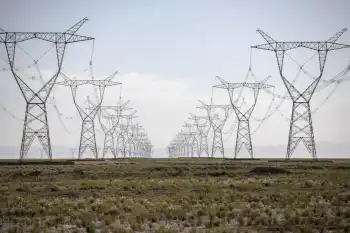Six companies' allocations questioned
By Knight Ridder Tribune
Protective Relay Training - Basic
Our customized live online or in‑person group training can be delivered to your staff at your location.

- Live Online
- 12 hours Instructor-led
- Group Training Available
The discounted power amounts to an average of about $45,000 per job over the five-year life of the contracts, well above the $35,000 ceiling the federal government places on several of its largest economic development programs. The Power Authority allocation exceeded that benchmark for three of the six companies, topping at about $151,000 per job for a Lockport technology firm.
"These are expensive deals," said Greg LeRoy, a national expert on economic development subsidies. Power Authority officials see it differently. "We think these are good allocations supporting the expansion plans of existing and new manufacturers in Western New York," said spokesman Michael Saltzman.
"The companies meet the criteria established under state law for jobs and capital investment for hydropower allocations." Altogether, the new allocations make up a small share, 2.35 megawatts, of the 695 megawatts of low-cost power generated at the Niagara Power Project in Lewiston that is earmarked for local industry. About 100 companies buy the power at about one-quarter market rates. A Buffalo News investigation published three weeks ago detailed the program's shortcomings. The program saved some 100 companies about $180 million last year, with 10 firms enjoying two-thirds of the savings. Dozens of companies receive subsidies considered excessive using the $35,000 per job benchmark.
The News also found that the criteria used to allocate power are outdated and favor old-line industries at the expense of new-economy enterprises. As a result, a study commissioned by the authority concluded that 85 percent of the program's discounted power could be put to more effective use. The costliest of the six allocations awarded went to Allegheny Technologies of Lockport. The estimated value of the discount amounts to about $450,000 over five years to create three jobs, some $151,000 per new employee. Two other companies received allocations whose value exceed the federal benchmark.
Saint Gobain Advanced Ceramics in Niagara Falls will enjoy estimated savings over five years of $1.5 million and will add 17 jobs, worth about $89,000 per job. Mayer Brothers Apple Products in West Seneca will receive estimated savings of about $300,000 over five years and create six jobs. That works out to about $50,000 per job. The five-year values of the three other subsidies were an estimated $39,100 to Precious Plate in Niagara Falls; $27,000 to Noble Metal Processing of Tonawanda; and $15,100 to Enodine of Orchard Park. The value of the allocations could eventually top the federal $35,000 benchmark if the contracts are extended beyond five years, which is usually the case.
"The numbers are high, especially when you consider the open-ended commitment," said LeRoy, executive director of Good Jobs First. In addition to committing to 79 additional jobs, the six companies plan on investing about $12 million over five years. In exchange, they will get $3.6 million in estimated savings.











